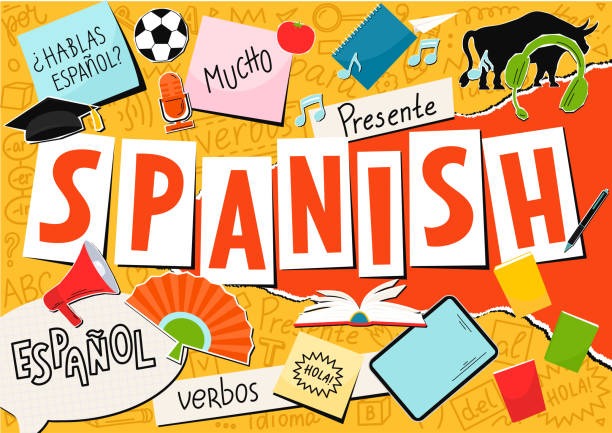Top 10 Digital Marketing Institutes in Delhi NCR (2025) | Fees, Courses & Placements
Top 10 Digital Marketing Institutes in Delhi NCR (2025) | Fees, Courses & Placements Top 10 Digital Marketing Institutes in Delhi NCR – 2025 Guide In today’s fast-paced digital world, every business wants to establish a strong online presence. Whether it’s a small shop in your neighborhood or a big multinational company, all rely on digital marketing to reach their customers. This is why digital marketing has become one of the most demanded skills in 2025. If you are in Delhi NCR and want to build a career in digital marketing, you have an advantage. Delhi NCR is home to some of the best digital marketing institutes that offer professional courses with practical training, certifications, internships, and placement assistance. In this blog, we will cover the top 10 digital marketing institutes in Delhi NCR and also discuss how to choose the right one for your career growth. Why Digital Marketing Courses Are Important in 2025 Growing Demand for Digital Marketing Professionals Every company is shifting its marketing budget from traditional ads like TV and newspapers to online marketing — Google Ads, Facebook Ads, SEO, and Instagram campaigns. As a result, companies are hiring skilled digital marketers to manage their online presence. This demand is only going to increase in the coming years, making it one of the hottest career options. Importance of Practical Training Digital marketing is a practical skill — just reading books won’t make you a good marketer. To succeed, you need hands-on training in tools like Google Analytics, Facebook Ads Manager, SEMrush, Ahrefs, and more. Institutes that offer practical exposure through live projects help students gain real industry experience, making them job-ready from day one. Job Opportunities After Digital Marketing Course The best part about learning digital marketing is the wide range of career options it opens. You can work as: SEO Specialist Social Media Manager Google Ads Expert Content Marketer Digital Marketing Executive Freelance Digital Marketer Digital Marketing Trainer Whether you want to work for a reputed company, start your own agency, or work as a freelancer, digital marketing makes all of this possible. How to Choose the Best Digital Marketing Institute in Delhi NCR Before you enroll in any institute, make sure to check these important factors: Course Curriculum A good institute must cover all essential modules, including: SEO (Search Engine Optimization) Google Ads (PPC Advertising) Social Media Marketing (Facebook, Instagram, LinkedIn) Content Marketing Email Marketing Affiliate Marketing YouTube Marketing Analytics and Reporting Always ask for the detailed syllabus before joining. Faculty Experience and Expertise The best institutes have industry-experienced trainers who have worked on real projects for companies. Trainers with practical experience can teach you advanced tips, case studies, and real-time problem-solving techniques. Placement Assistance and Internship Check if the institute offers: Internships with digital agencies Mock interviews Resume building sessions Guaranteed placement assistance Placement support is important if you are a fresher. Reviews and Ratings of the Institute Always check Google reviews, student testimonials, and feedback on social media platforms. Genuine student reviews give you real insight into teaching quality, infrastructure, and post-course support. Top 10 Digital Marketing Institutes in Delhi NCR (2025) Here’s a list of the most reputed institutes in Delhi NCR for digital marketing training: Delhi School of Internet Marketing (DSIM) Advanced digital marketing program 15+ certifications Practical training with live projects Strong placement record Digital Vidya Industry-recognized certifications Flexible online and offline batches Corporate training experience Partnered with Google, HubSpot & Facebook NIIT Digital Marketing One of the oldest education brands Global certifications Comprehensive syllabus 100% placement assistance EduPristine Classroom training with workshops Focus on case studies Affordable fees Ideal for beginners Expert Training Institute (ETI) Located in Rohini, Delhi Practical & advanced course modules Focus on practical learning Internship opportunities included Manipal ProLearn Corporate style training Real-world case studies Global certifications Placement assistance DIDM (Delhi Institute of Digital Marketing) Advanced curriculum with tools training Flexible timing Internship guaranteed Focus on job-ready skills IIM Skills Best for online learners Government-recognized certificate Focus on practical assignments Internship & placement support Digital Academy India Hands-on training Guest lectures by industry experts Budget-friendly courses Ideal for students & freshers Simplilearn Digital Marketing Course Internationally recognized Online live classes Covers advanced topics like automation Trusted by global brands Benefits of Learning Digital Marketing in Delhi NCR Top Trainers in the Industry Delhi NCR is home to some of the best digital marketing experts who frequently conduct guest lectures, workshops, and seminars. This helps you learn from the best minds in the field. More Job Opportunities Being the capital region, Delhi NCR has thousands of digital marketing agencies, startups, and businesses looking to hire digital marketers every month. This creates plenty of job opportunities for freshers. Networking Advantage Delhi NCR hosts top marketing events like Digital Marketing Conclave, Ad:Tech, and Digital India Summit. Attending these events helps you build connections with industry leaders. Career Options After Digital Marketing Course Here are some high-demand roles you can apply for: Digital Marketing Executive (Entry Level) SEO Analyst PPC Specialist Social Media Manager Content Marketing Manager Digital Marketing Consultant Affiliate Marketing Manager Fee Comparison of Top Digital Marketing Institutes in Delhi NCR Institute Name Fee Range (INR) DSIM ₹45,000 – ₹75,000 Digital Vidya ₹50,000 – ₹85,000 NIIT ₹55,000 – ₹90,000 EduPristine ₹40,000 – ₹70,000 ETI ₹35,000 – ₹60,000 Online Vs Offline Digital Marketing Course – Which is Better? Factor Online Course Offline Course Flexibility High Low Networking Limited Strong Cost Affordable Slightly Expensive Practical Exposure Depends on Institute Direct Hands-on Trainer Interaction Virtual Face-to-face If you are a working professional or live far from training centers, online courses work better. If you prefer personalized mentoring and networking, offline training is ideal. Conclusion Choosing the right digital marketing institute in Delhi NCR is your first step toward a successful digital marketing career. Make sure you focus on practical training, certifications, experienced faculty, and strong placement support. The institutes mentioned in this blog are some of the best in the region and can help you master digital marketing










